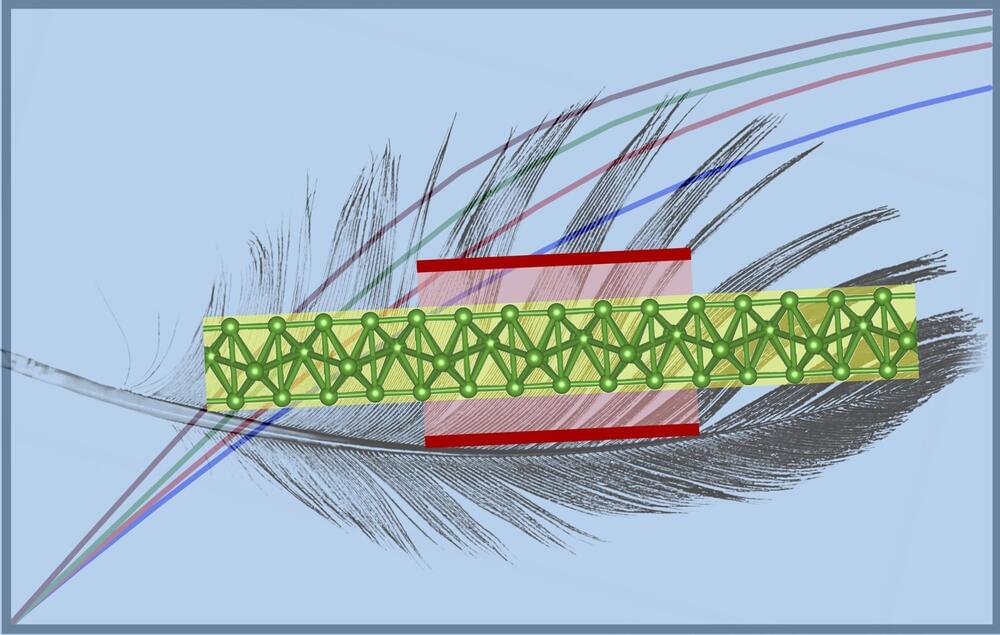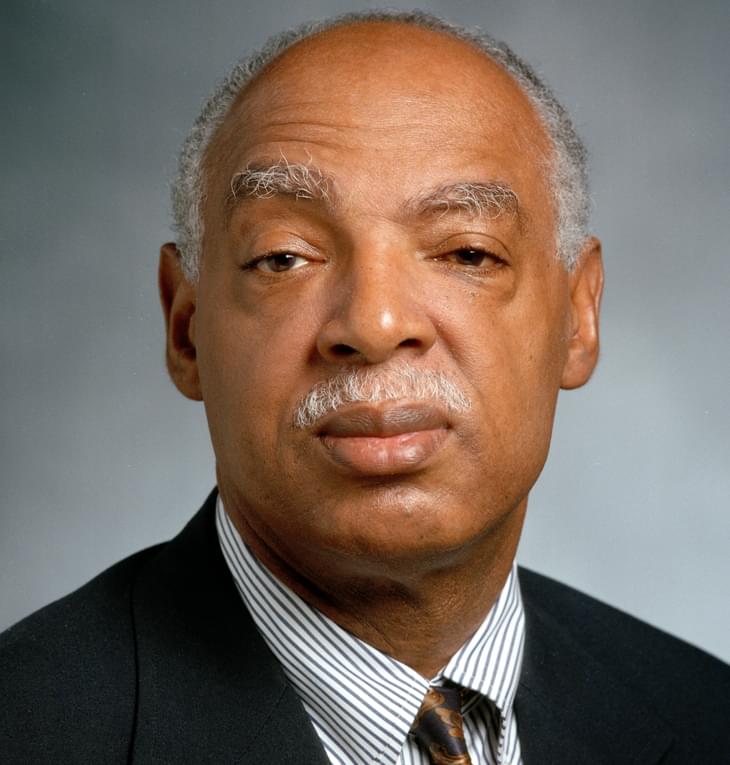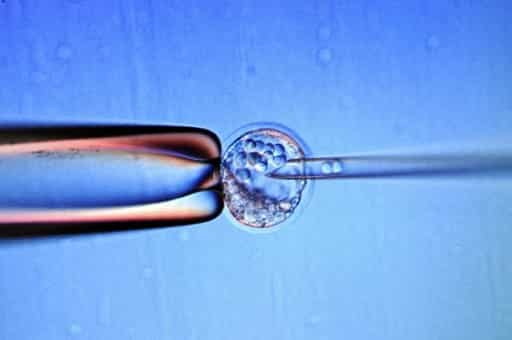Three years ago, the study of black holes was revolutionized. Now, the team is turning to the closest supermassive black hole to Earth — the one at the center of the Milky Way.
Get the latest international news and world events from around the world.

Neil Turok: Physics is in Crisis
Renowned physicist Neil Turok, Holder of the Higgs Chair of Theoretical Physics at the University of Edinburgh, joins me to discuss the state of science and the universe. is Physics in trouble? What hope is there to return to more productive and Simple theories? What is Peter Higgs up to?
Neil Turok has been director emeritus of the Perimeter Institute for Theoretical Physics since 2019. He specializes in mathematical physics and early-universe physics, including the cosmological constant and a cyclic model for the universe.
He has written several books including Endless Universe: Beyond the Big Bang and The Universe Within: From Quantum to Cosmos.
00:00:00 Intro.
00:03:28 What is the meaning of Neil’s book cover?
00:06:46 The Nature of the Endless Universe.
00:14:31 What would happen to James Clerk Maxwell and Michael Faraday on Twitter?
00:16:10 What’s wrong with physics today?
00:20:06 How did Neil’s life change after his theory was proven wrong?
00:23:28 Neil shows us fundamental laws of the Universe in equations.
00:33:59 How well do our modern equations satisfy the conditions of the observable Universe?
00:56:29 How is the Universe simple?
01:20:01 Can Neil’s model explain flatness without inflation?
01:54:54 Existential Questions on the meaning of life, advice to his former self, and things he’s changed his mind on.
Join this channel to get access to perks:
https://www.youtube.com/channel/UCmXH_moPhfkqCk6S3b9RWuw/join.
📺 Watch my most popular videos:📺

New semiconducting borophene paves the way for the lightest high-performance transistor
In the year 1,808, French chemists Joseph-Louis Gay-Lussac and Louis-Jacques Thenard, and independently, English chemist Humphry Davy, discovered the fifth element of the periodic table—boron. In crystalline form, boron primarily possesses three polymorphs, i.e., three distinct unit cell configurations: α-rhombohedral, β-rhombohedral, and β-tetragonal, among 16 possible bulk allotropes.
The unique properties of this element have resulted in its use in numerous applications, including chemistry, materials science, life sciences, energy research and electronics. Moreover, based on studies conducted over the past decade, boron has significant potential for use in pharmaceutical drug design as it plays an essential role in bone growth and maintenance, wound healing, prevention of vitamin-D deficiency and other processes.
In the periodic table of elements, boron lies to the left of carbon, which causes boron to have similar valence orbitals but a shorter covalent radius. In contrast to carbon, which favors a 2D (two-dimensional) layered structure (aka graphite) in its bulk form, the bulk allotropes of boron are composed of B12 icosahedral cages. As a result, it was challenging to experimentally realize a 2D atomic network of boron, also known as borophene, until 2015.

Dr. Lonnie Reid
Lonnie Reid is nationally recognized in turbomachinery for his knowledge of internal flow in advanced aerospace propulsion systems. He has a long history of integrating the theoretical and experimental elements of fluid dynamics work to expand the database of compressor and fan design. He has not only demonstrated excellent leadership skills in several positions, including as chief of the Internal Fluid Mechanics Division, but has been influential in recruiting and mentoring the next generation of scientists and engineers.
Lonnie Reid was born on September 5, 1935, in Gastonia, North Carolina. After serving in the U.S. Army, he earned a mechanical engineering degree from Tennessee State University. He joined the NASA Lewis Research Center as a research engineer shortly after graduating in 1961 and spent the next 20 years as both a researcher and manager in the Compressor Section of the Fluid Systems Components Division.
In the early 1960s the group focused on improving the performance of high-speed turbopumps that pumped cryogenic propellants in space vehicles. The pumping of liquid hydrogen in near-boiling conditions, referred to as “cavitation,” was a particular concern. The fluids systems researchers improved pump designs and demonstrated the ability to pump hydrogen in cavitating conditions. These were key contributions to the success of the Centaur and Saturn upper-stage rockets.
The Astonishing Simplicity of Everything | Neil Turok
https://youtube.com/watch?v=JV7K8CvA26I&feature=share
Source: Perimeter Institute for Theoretical Physics https://youtu.be/f1x9lgX8GaE
Courtesy of the Perimeter Institute https://www.youtube.com/user/PIOutreach.
Inside the Perimeter https://insidetheperimeter.ca.
In October 2015 Neil Turok, director of the Perimeter Institute for Theoretical Physics (PI) located in Waterloo, Canada opened the new season of the PI Public Lecture Series with a talk about the remarkable simplicity that underlies nature. Professor Turok, who was born in South Africa and now lives in Canada, discussed how this simplicity at the largest and tiniest scales of the Universe is pointing toward new avenues of research and revolutionary advances in technology.

New Faraday Cages Can Be Switched Off and On
Advanced new Faraday cages—the metal mesh enclosures that can block wireless signals—can also be switched on and off for reversible protection against noise, a new study finds.
In addition, these new shields can be easily fabricated through a technique akin to spray-painting, which could help them find use in electronics, researchers say.
Built out of a novel material called MXene, these cages could block and allow signals as desired.
A touch-screen fridge? A seven-blade razor? Why is everything suddenly so complicated?
Modern technology is supposed to make our world better. But my flat’s ‘lighting system’ is broken, and I long for a single, simple light switch.
The colour that doesn’t exist
When we look at a rainbow, we see a full spectrum of light. Every colour we could imagine. Except one – magenta. Where is it? Well, officially magenta doesn’t exist. There is no wavelength of light for magenta, meaning the human brain literally makes it up, but how? Video by Archie Crofton Narrated by Lotte Rice Commissioned by Paul Ivan Harris Follow BBC Reel on Twitter, Instagram, Facebook and YouTube.

Chinese scientists clone ‘super cows’ capable of producing huge amounts of milk
Scientists in China have cloned what are being called ‘super cows’, local media has reported. These cows are reportedly able to produce huge amounts of milk in their lifetime. The cows have been cloned as part of a process to reduce China’s dependence on foreign breeds. According to China’s Global Times, about 70 per cent of China’s dairy cows are imported from other countries.
The ‘super cows’ are three calves which have been cloned by China’s Northwest University of Agricultural and Forestry Science and Technology. These calves were born in Ningxia region in weeks leading to January 23, said reports in local media.
Jin Yaping, lead scientist of the project described the successful cloning as ‘breakthrough’.